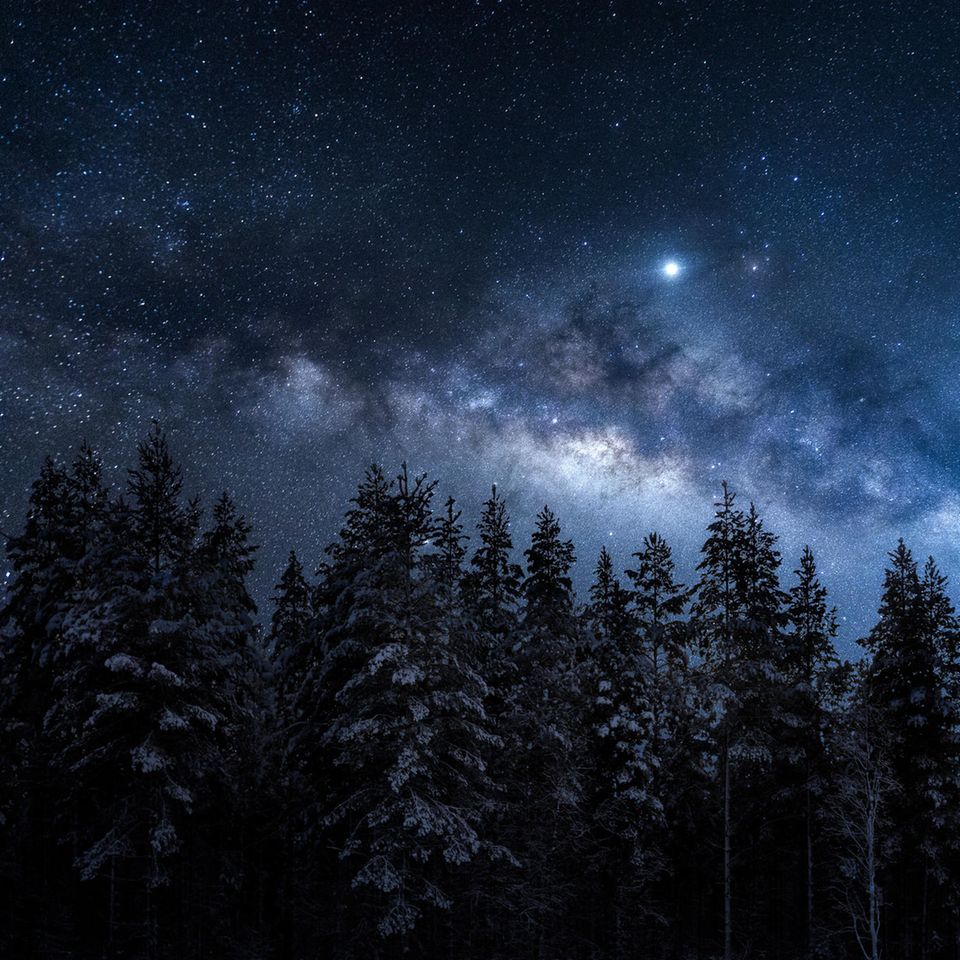Bye 2023!
How the curfew nights help us say goodbye to the old year with gratitude
© Angelika Beck / Adobe Stock
The Raunächte are now known to many and have almost experienced a hype in recent years. The closed nights, on the other hand, are not that familiar to many people, but both are firmly interwoven into the yearly cycle.
The closed nights, also known as dark nights, are a very special time before the winter solstice on December 21st. Just like the rough nights that follow them, they are portal days in the annual circle on which we can come into greater contact with the cosmic energies.
What are the closed nights?
The closed nights are the twelve nights before the winter solstice. Because they are also the darkest nights of the year, they are also known as dark nights. With the winter solstice, the days finally become longer again. Both the summer solstice and the winter solstice were significant energetic events in the annual cycle for our ancestors. The winter solstice symbolizes the rebirth of light, new beginnings and initiates a new solar cycle.
When do the closing nights start?
Similar to the rough nights, there are also different traditions as to when they begin. However, they usually agree on the night of December 8th to 9th. as the beginning of the curfew nights. They end on December 20th, the day before the winter solstice and Yule.
As with the 12 rough nights, where each night represents a month in the coming year, each of the 12 closed nights represents a month of the past year:
8th to 9th December – January
December 9th to 10th – February
10th to 11th December – March
11th to 12th December – April
December 12th to 13th – May
13th to 14th December – June
December 14th to 15th – July
December 15th to 16th – August
December 16th to 17th – September
December 17th to 18th – October
December 18th to 19th – November
December 19th to 20th – December
Why are they called closing nights?
It is possible that the name can be traced back to the activities that used to be carried out before the rough nights. Before there could be a time of peace, the house and yard had to be made winter-proof. The work equipment was “locked away” and the productive time came to an end. At the same time, it was used to protect one’s belongings from the wild hunt in which the souls of the dead, led by Odin, come to the rough nights from the other world and cause mischief, as it was believed.
What do the closing nights mean today?
While we look to the future and the new year on the rough nights, we look back on the closed nights. Before the new, the old should be completed. This includes reflecting and going within ourselves. What do we want to let go? What can stay? What happened this year?
The twelve days serve to lovingly let go of the past year in order to enter the rough nights free of old burdens, during which the focus is primarily on manifesting wishes and goals. The closed nights are the equivalent to the rough nights and their basis. They make room for new things and offer space for gratitude and reflection.
The short days and long nights before the winter solstice are particularly suitable for dealing with some questions in more detail.
Questions for your closed nights on December 8th.
• What am I grateful for this year?
• What was I allowed to learn?
• What do I want to let go of?
• What would I like to take with me into the new year?
Each day of the curfew nights represents a month. So you can now review the corresponding month every day. Maybe you kept a diary, or you’re looking for photos from this period and traveling back to the days and places and feeling inside again.
3 little rituals for your curfew nights
1. Light a candle
Especially on dark days, fire rituals are a wonderful source of bringing light and warmth into your life. So consciously light a candle every day and take a moment to pause.
2. Write a diary
Take a moment every day to write down the most important things about that month. The questions mentioned above can provide you with guidance.
3. Meditate
In the morning after getting up, in between or in the evening: When meditating you can find yourself and ground yourself. Introspection and slowing down help you feel what you want to let go of and what can stay. Then write down what comes to mind.
Sources: Wikipedia, naturspirit.at, thesoulspace.de

